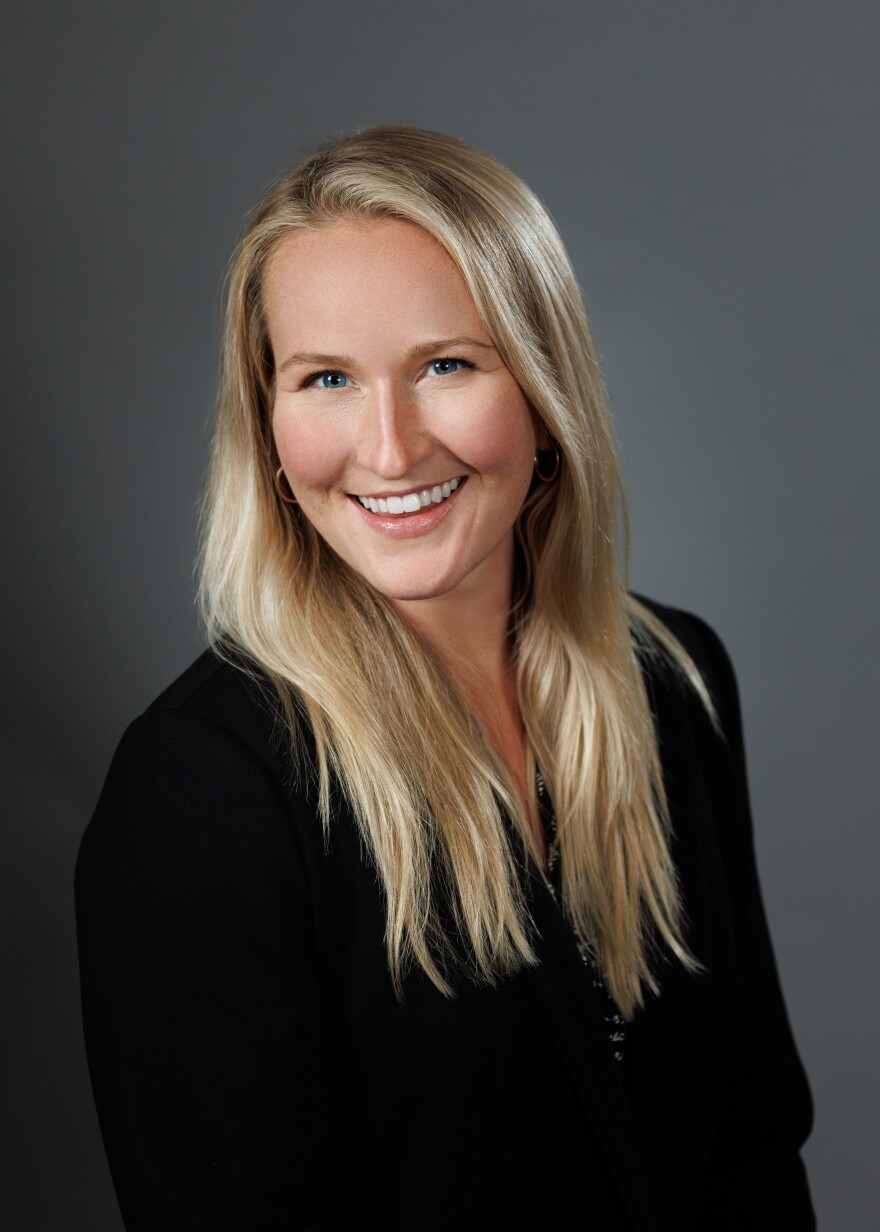For most of his adult life, Armand Lucier of Portland didn't have time for college. After he graduated high school, he went into the military, then became a Maine state trooper for 25 years while raising a family. After he retired from that job, he decided to take a few classes at the University of Southern Maine while working for attorneys as a private investigator.
"A lot of times they would give me cases and they'd say,' These are the issues I want you to look at.' And I would look at it, and I'm like, 'Okay, you want me to look at this particular part of the case. But what about this part of the case? That is where your issues really are.' And I realized that I had a lot to offer," Lucier said.
He decided to become a lawyer and says the University of Maine School of Law's accelerated 3 + 3 program, in which students do three years of undergrad and three years of law school was an important factor in his decision.
"Because I'm an older student, and you know, if I can shave a year off of school, and save that time, and get into the workforce sooner for me, that was certainly key," he said.
Being able to get a bachelors and law degree in six years instead of seven was also important to Andy Almonte. He's a first generation college student from New Hampshire, and said he's known since he was a kid he wanted to be a lawyer.
"I never liked being wrong," he said. "I always liked arguing."

Almonte, who's in his first year of law school, said he chose USM'S accelerated program for financial reasons.
"Looking at how much loans I would have to take out in undergrad and then comparing that with loans from law school, I just, I didn't think I'd be able to afford it. So a six year instead of seven year track just seemed more logical," he said.
Undergrads who want to pursue an accelerated degree have to apply to Maine Law in their junior year. If they're accepted, they begin law school in what would have been their senior year. The dean of the law school, Leigh Saufley, said students at any UMaine campus can apply, as can students from Husson University, St. Joseph's College and the University of New England.
"The goal is really to help those students who know while they're in college, what they want to do, to be able to reach that goal as soon as they can with the least costs, and the greatest opportunity to get out in the world and make a difference," Saufley said.
When Maine Law's program first launched, school officials also hoped it would boost enrollment, which has hovered between 80 and 90 students for years. Overall enrollment remains somewhat static, and the number of students pursuing accelerated degrees is small, but growing, said Saufley. Eight have graduated since it began about five years ago, and there are currently 11 students enrolled.
"When I started, I started with the pipe dream of law school," said Lizzie Cantey. She just began her law degree this fall after completing three years of undergrad as a sociology major. Originally from Ohio, Cantey says she dropped out of school in 10th grade and earned her GED later while in juvenile detention. She tried a variety of jobs, including early childhood education and elder care.

"All of the work I did, I really spend a lot of my personal, you know, even free time, and what I wanted my career to be in was helping people," Cantey said. "But I felt like a lot of the positions, I was kind of frustrated by the system that we operated within."
She decided a law degree would equip her with the skills she needs to implement change. And she says graduating with less debt will make it easier for her to pursue meaningful work.
"That might not pay as much," Cantey said. "But I wouldn't be forced to work in a position that I wasn't as happy with, in order to pay off all of the debt."
Similarly, Andy Almonte said graduating with a lighter financial burden will give him more flexibility to serve the Latino community in his home town, in which many people don't speak English.
"Our access to the legal community was already pretty limited," he said. "And then just having someone that could be able to translate that out of legalese and into more layman's speak that everyone can understand it's something that I saw was really lacking, and kind of was my call to action to go to school."
Armand Lucier, the state-trooper-turned law student, was the first graduate of the 3+3 program. He recently passed the bar and last month, at age 59, was sworn in as an attorney. He plans to become a criminal defense lawyer.



